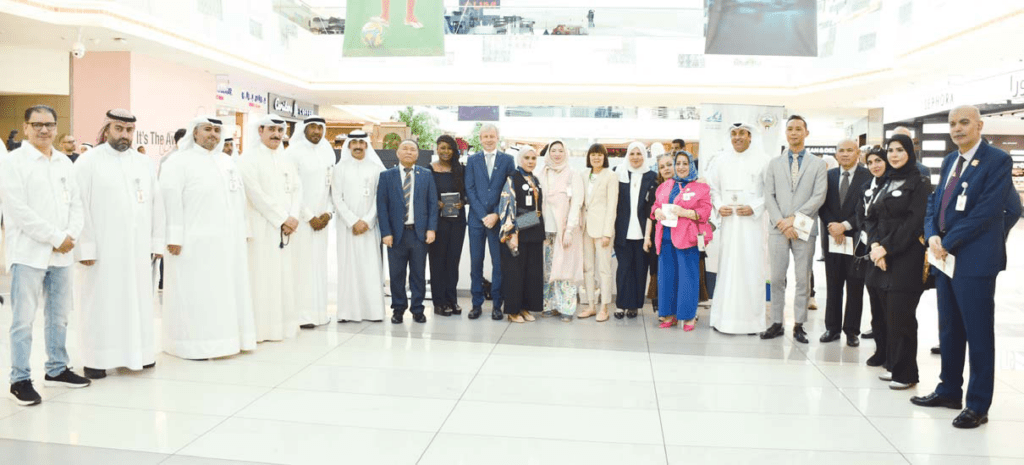30/07/2024
30/07/2024
KUWAIT CITY, July 30: Capital Prosecutor and Anti-Human Trafficking and Migrant Smuggling in charge Ahmad Al-Kandari disclosed that human trafficking has two aspects – material and moral. Al-Kandari made the statement during the Kuwait Nights program on Kuwait TV in the presence of the Deputy Director General of the Manpower Protection Sector at the Public Authority for Manpower (PAM) Dr. Fahad Murad. He explained that the material aspect of the crime has three elements: reception, shelter, and means including actions through the independence of authority or the threat of using force or trickery or material and financial benefits; hence, they are all related to various forms of trafficking like sexual exploitation, prostitution and forced labor.

He pointed out the moral element is that the perpetrator knows he is committing a crime and he has the will to do so. He said Law No. 91/2013 stipulates many penalties for human trafficking, such as imprisonment for 15 years. He added this penalty increases depending on the severity of the case, up to life imprisonment or death penalty. He clarified the perpetrator is sentenced to life in prison if the victim is a child or a person with special needs, if the crime is committed by more than one person and if there is a visible or hidden weapon; while the death penalty is imposed in the event of the victim’s death.
On the other hand, Murad confirmed that the shelter at PAM caters to human trafficking victims or those suspected of being victims. He revealed the victims can enter the shelter themselves or through diplomatic missions in coordination with the Ministry of Foreign Affairs.
Meanwhile, the official spokesperson of the Health Ministry Dr. Abdullah Al-Sanad confirmed that the State of Kuwait is keen on fulfilling its humanitarian and legal obligations through its institutions.
In a press statement on the occasion of the World Day Against Trafficking in Persons, which falls on July 30 every year, Al-Sanad affirmed that the Constitution of Kuwait has established the fight against human trafficking, according to which, national legislation was issued and agreements were concluded with regional and international organizations. He said the ministry is carrying out its lofty humanitarian mission to combat human trafficking through the services it provides to victims, in cooperation with official authorities in the country, indicating legal and security teams are present in health facilities round the clock.
He added the ministry is coordinating with the relevant government agencies in the Permanent National Committee for Combating Human Trafficking and Migrant Smuggling; which lays down plans and strategies, and protects the victims. He revealed the services provided in shelters include medical services, stating that medical and nursing staff are assigned to check the health condition of the shelter residents, prepare treatment plans for them, monitor their medical condition and provide support medical services; in addition to ambulances equipped with the latest medical devices according to international standards. He stressed that the resident is not charged for these services. He added the doctors inform the concerned security authorities about residents who are medically examined upon discovering that they could be victims of human trafficking. He affirmed the law on practicing the medical profession made it easier for medical personnel to identify cases that require reporting, as well as enhancing the capabilities of medical and nursing staff on how to deal with human trafficking victims.
He disclosed the ministry also conducts laboratory tests and X-rays for victims in shelters and provides them with seasonal vaccinations, without requiring the inmate to pay fees for the services rendered. He affirmed the legislator was keen on ensuring the safety of individuals and establish the provisions and principles of Islamic Law.
He said the Organ Transplant Law prohibits the sale or purchase of body organs by any means or receiving any financial compensation. It prevents the doctor from performing the organ removal operation if he is aware of such transactions. It also supports the ministry in combating human trafficking through the sale of human organs, he explained. On the ministry’s continued efforts in this regard, Al-Sanad confirmed the establishment of hotline number 147 for receiving calls from children or their families who want to report cases of child abuse or exposure to any illegal act. “Verification is done to ensure that the child calling is below 18 years old. Calls are received by a specialized team trained on how to deal with the cases by the Child Rights Law,” he concluded.
By Fares Al-Abdan and Marwa Al-Bahrawi
Al-Seyassah/Arab Times Staff


